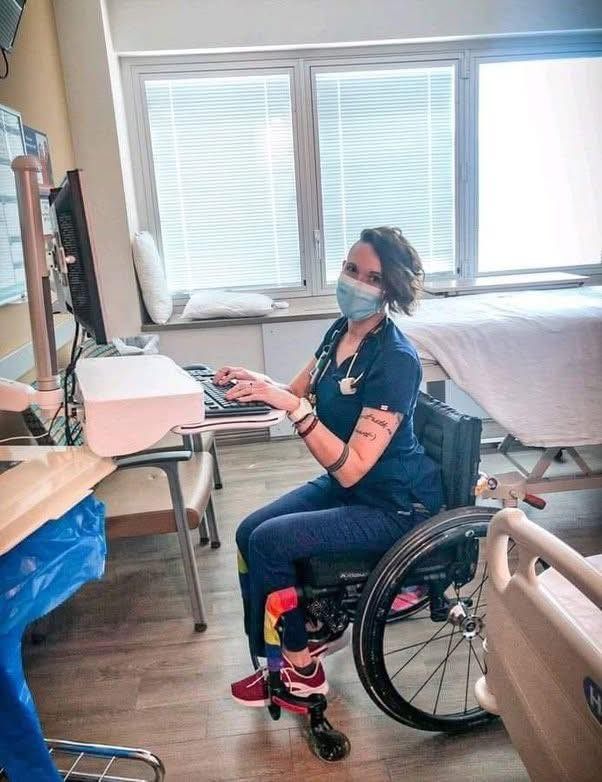I remember when this all started—how hopeful I was, how eager I felt. I had just graduated and earned my nursing credentials. I dreamed of returning to the bedside, helping people day in and day out. But life had another plan, or so it seemed.
The Early Days: Hope Meets Hard Reality
In the beginning, my mornings were full of promise. I would wake early, review job boards, tailor cover letters, update my resume, and submit application after application. Friends and family encouraged me. They said things like, “You’ll find the right place soon,” or “They’re going to be lucky to have you.” Those words were comforting, but they became faint echoes against a growing tide of silence.
Weeks turned into months. Months bled into a year. I interviewed at hospitals, clinics, and care centers. Some places responded. Many didn’t. Some expressed interest, then vanished. Others gave me gentle rejection notes. But always the same message: “We’ve chosen another candidate.”
Every rejection felt like a door slamming in my face.

I began to question: “Is it me? Are my skills not good enough? Or is something else going on?” The doubts crept in, uninvited and insidious.
Wrestling with Self-Doubt
By the end of the first year, I had begun to internalize those rejections. On the worst days, I told myself: maybe people see the wheelchair before they see my qualifications. Maybe my disability makes me less capable in their eyes. Maybe no one will ever see past it.
I replayed interviews in my head. I worried I sounded weak. I rehearsed better answers. I asked friends for feedback. I even practiced being more “assertive” on calls. But still, doors remained closed.
Despite the pain, I tried to cling to small victories. I had colleagues and mentors tell me that I was qualified, compassionate, and absolutely capable. That their rejections weren’t about me, but about fear or bias or misunderstanding. Those voices gave me fragments of hope when the darkness threatened to swallow me.
That “Last” Interview — When Nothing Left to Lose
As I entered year two, my resilience was threadbare. I still kept applying and interviewing, but I felt like I was going through the motions. My heart ached more often than it soared.
Then came the interview for a night-shift position in the Mother/Baby Unit at a local trauma hospital. It felt like a long shot. I knew the staff would be busy, the expectations high, and the role demanding. But I thought: what do I have to lose?
The interview itself went like many others—questions about experience, teamwork, stress, patient care. Toward the end, the interviewer paused and looked me right in the eyes: “Do you have any physical limitations we should know about?”
I took a breath. “Yes,” I said. “I use a wheelchair.”
My mind flooded with anxiety. What if they end the interview right here? What if they see it as a disqualifier? What if everything I had been through—countless rejections—was coming to this moment of “No”?
The Unexpected Response
What came next still feels surreal. The interviewer didn’t shift uncomfortably or glance away. She leaned forward. She smiled. And she said something I never anticipated:
“I don’t see why being in a wheelchair would affect your ability to give good care… plus, you’re the perfect height to catch babies!”
My brain froze. My heart raced. Was this real? Was she serious?
I wanted to respond, but I found no words. It felt like a dream—or maybe a trick. Maybe I misheard. Maybe in the next moment she’d retract. But she didn’t. She went on to ask more questions, to outline expectations, to talk schedules, to share her own experiences. The rest of the interview passed in a blur.
I left that meeting stunned—part joy, part disbelief, part anxiety. I told no one, not yet. I wanted to walk through the rest of the process to make sure it was real.
The Validation — Orientation Starts
Days later, I received an acceptance. With orientation schedule in hand, I finally believed. This was real. I wasn’t imagining it.
Monday morning came. I arrived at the hospital, suitcase in hand, nervousness twisting my stomach. The night-shift team met me. They welcomed me. They showed me around. And I began my orientation as their first RN on wheels, working in the Mother/Baby Unit.
I cannot begin to describe the mixture of emotions flooding me: gratitude, disbelief, humility, hope, and pride. Within me, a voice whispered: Maybe miracles do happen.
What It Means Now — Beyond the Job
This isn’t just about getting a job. It’s about identity and worth and possibility. It’s about refusing to let biases define my path. It’s about showing others that doors can open—even when you’ve knocked too many times to count.
Yes, I will face new challenges. Night shifts are hard. Learning a specialized area will test me. But I feel stronger now—not because I’ve magically become fearless, but because I’ve seen what’s possible.
I hope this story helps someone out there who’s feeling invisible or ruled out. If you’re struggling, still sending applications, still hoping for a chance: don’t stop. One moment—one unexpected interview, one person willing to see you—can change everything.
I will share more soon: about my first night on duty, the adjustments I’m making, and how it feels to bring caregiving from a wheelchair. For anyone reading this who has been in my shoes—keep going. Keep showing up. Your moment might be just around the bend.